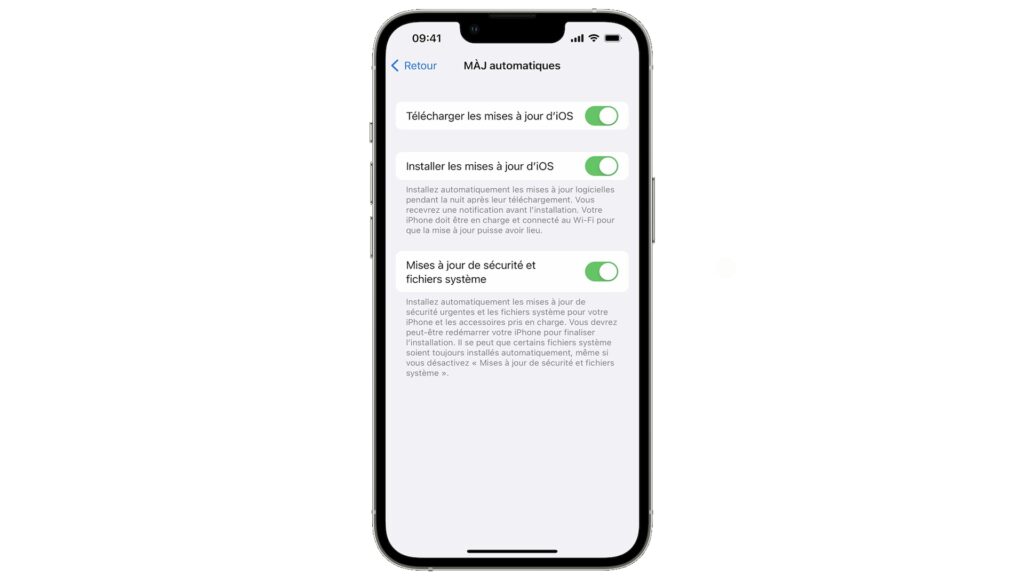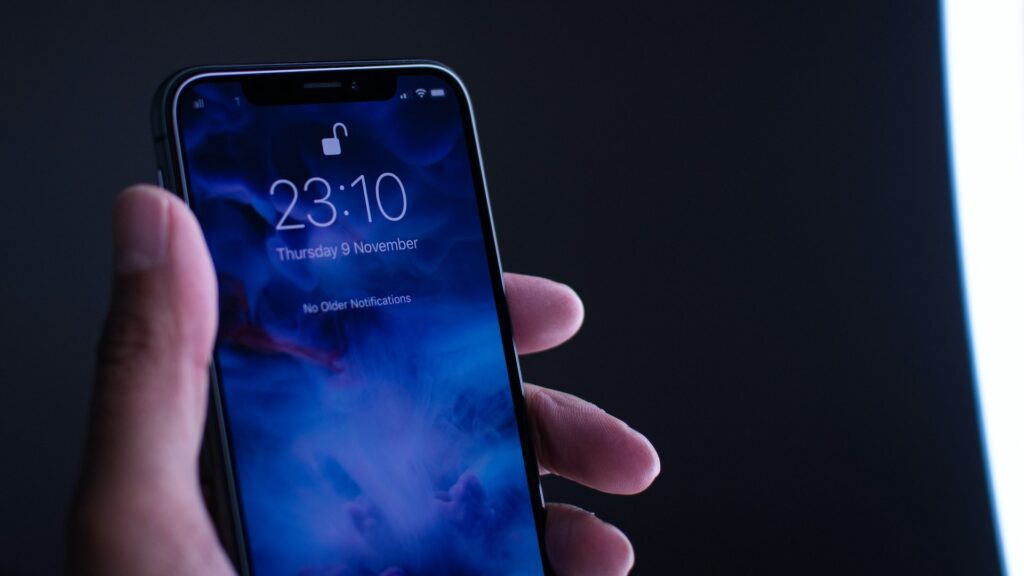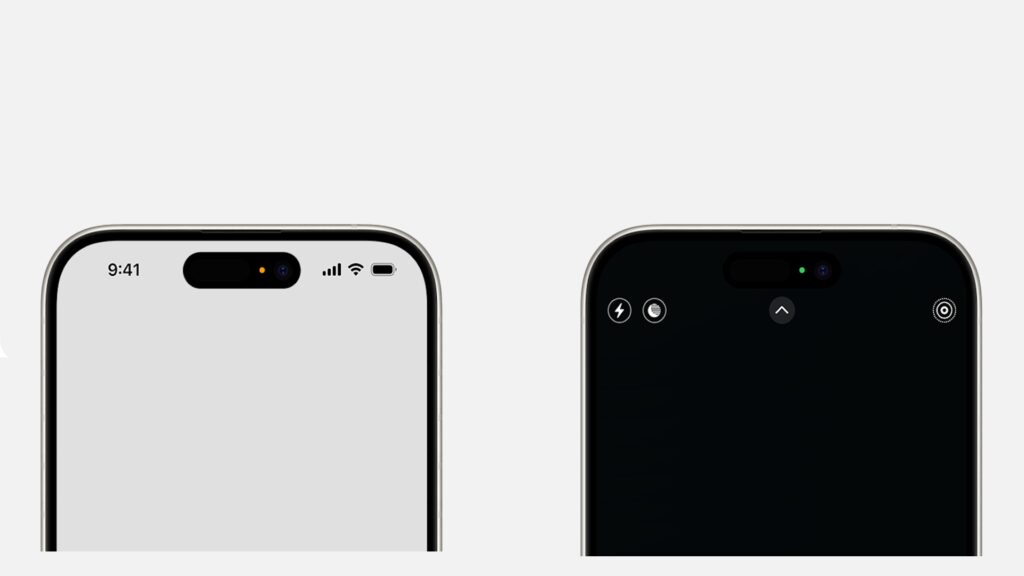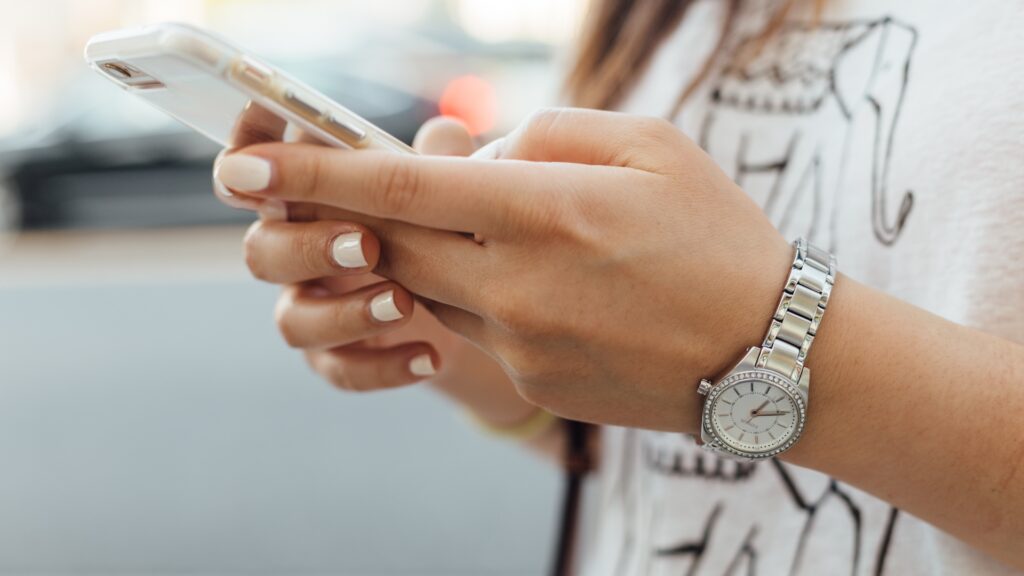iPhones are renowned as being the safest smartphones on the market, but what is it really like? Some common errors may still put your personal data at risk.
Many iPhone owners are convinced that their smartphone is inviolable and that it is absolutely not affected by cyber threats. This preconceived idea is not new. It is explained historically by a lower propensity to malware on iOS than on Android, but also by Apple’s relatively closed ecosystem.
However, zero risk does not exist and certain uses can expose your private data to hackers. Here are the main threats to your iPhone and the best practices to adopt to protect all your sensitive information.
Mistake #1: Not keeping your iPhone up to date
Regularly updating iOS and its applications is essential to best guarantee the security of the iPhone. It is, in fact, through them that Apple, as well as application publishers, fill any security gaps and thus prevent hackers from using a back door.

In order not to have to manually take care of these updates, the easiest way is to schedule their automatic download and installation. This way, you will not miss an important flaw, these being not so rare.
In December 2023, for example, Apple corrected two vulnerabilities which notably affected its Safari browser and opened the way for hackers to remotely install spyware on the smartphone. In August 2023, a major flaw allowed hackers to infiltrate iPhones using an image and the Wallet application.
Mistake #2: Connecting to a Public Wi-Fi Network Without a VPN
You are on vacation abroad, outside the boundaries of your mobile plan, or at a restaurant during your lunch break, without a mobile network and you urgently need to check your emails or your bank account. While it is tempting to connect to the establishment’s public Wi-Fi network, beware of the risks involved!


Some of them are completely insecure and expose all your data to hackers. In order not to put your banking information or login credentials in their hands, it is best to rely on a VPN.
This is responsible for securing and encrypting the data flow transmitted by your devices for you, to guarantee confidentiality. In this way, the VPN blocks all attempts by hackers to break into your iPhone.
Mistake #3: not effectively protecting access to your smartphone
Equipping yourself with the best tools to protect your data against cyberattacks is good, but all the tools are useless if your smartphone is accessible to everyone in a few clicks.
How you lock your smartphone is essential in the event of theft. So try to be discreet when typing your code!
If during a theft, the person is able to unlock your smartphone, then they have access to almost all your data. Including your payment methods stored in Apple Pay.
Out with the PIN code, in with biometrics and strong passwords
To limit the risks in the event of theft, it is therefore recommended to favor unlocking by fingerprint or facial recognition when you are in a public place. In addition, it is essential to opt for an alphanumeric password rather than a 4-digit PIN code. Stronger, it is also more difficult for kidnappers to hold.


To go further and improve the security of your Apple account, you can also enable two-factor authentication (2FA). Therefore, a verification code will be required each time you log in to this account.
Activate the location of your iPhone
The Find My option is a valuable asset for iPhone owners. It can be activated directly from the phone’s settings. The idea is not to show all your contacts your various trips, but to be able to discover where your smartphone is in real time. A very useful feature in the event of loss of the iPhone.
Better yet, this tool allows you to lock it and erase your data remotely. Perfect for blocking all access to your kidnappers and keeping all your personal information and files safe.
Mistake #4: Being too lax with your app privacy settings
Some apps ask you to access things they don’t actually need to work, like the camera, microphone, photos. In order to best protect your privacy, it is important to regularly check all the authorizations granted for each of them and limit them to the strict minimum.


For example, a PDF creator does need access to your images folder and documents, but not your microphone. The more confidential your data remains, the less likely it is to fall into the wrong hands.
In addition to individualized application settings, Apple has implemented an indicator light, which is activated when the microphone and/or camera are active. A green or orange dot then appears at the top of the screen, respectively when the camera or microphone is working. So you can tell at a glance if they are being misused.
Mistake #5: Being too confident on the internet
You can undertake to optimize all the security and confidentiality settings of your iPhone, your personal data will not be safe without a minimum of caution.


Scams are multiplying and today take very varied forms: from phishing (phishing) to smishing (phishing by SMS) including telephone scams. And the methods used by hackers are increasingly sophisticated, to the point of becoming undetectable if you are not careful.
Some precautions are therefore necessary, such as never clicking on a link received by SMS or e-mail, never calling back an unknown number, and above all never entering personal information, passwords and passwords. bank details on a site before being certain of its reliability.
Bitdefender: complete, turnkey solutions to protect your iPhone
To protect your personal data, you must therefore exercise great caution and, above all, configure your iPhone properly. But even so, it is always possible to fall into a trap, as they are better and better made.
Certain tools will therefore be very useful, because they allow you to further optimize the security of your smartphone and to check that the security of your information is not compromised. Bitdefender Premium Security Plus is a great example of this, allowing you to protect all your devices without leaving a weak link.
For only 89.99 euros for the first year instead of 179.99 euros, this cybersecurity solution is one of the most complete and easiest to use on the market.
As a bonus, the tool covers not only your iPhone, but also up to 9 other devices (secondary smartphone, tablet, PC/Mac). Exit viruses, malware and other malicious programs, but also all phishing threats. At the slightest risk, you are immediately alerted to the danger.
To go even further, Bitdefender’s solution also includes a VPN, as well as a password manager. The tool also tells you when your data is exposed, including on the dark web. When the case arises, the system provides you with the steps to follow to simply and effectively regain control of all this sensitive information.
